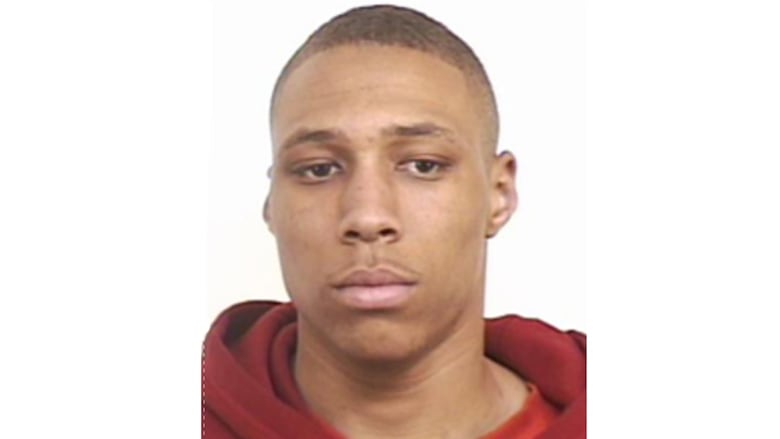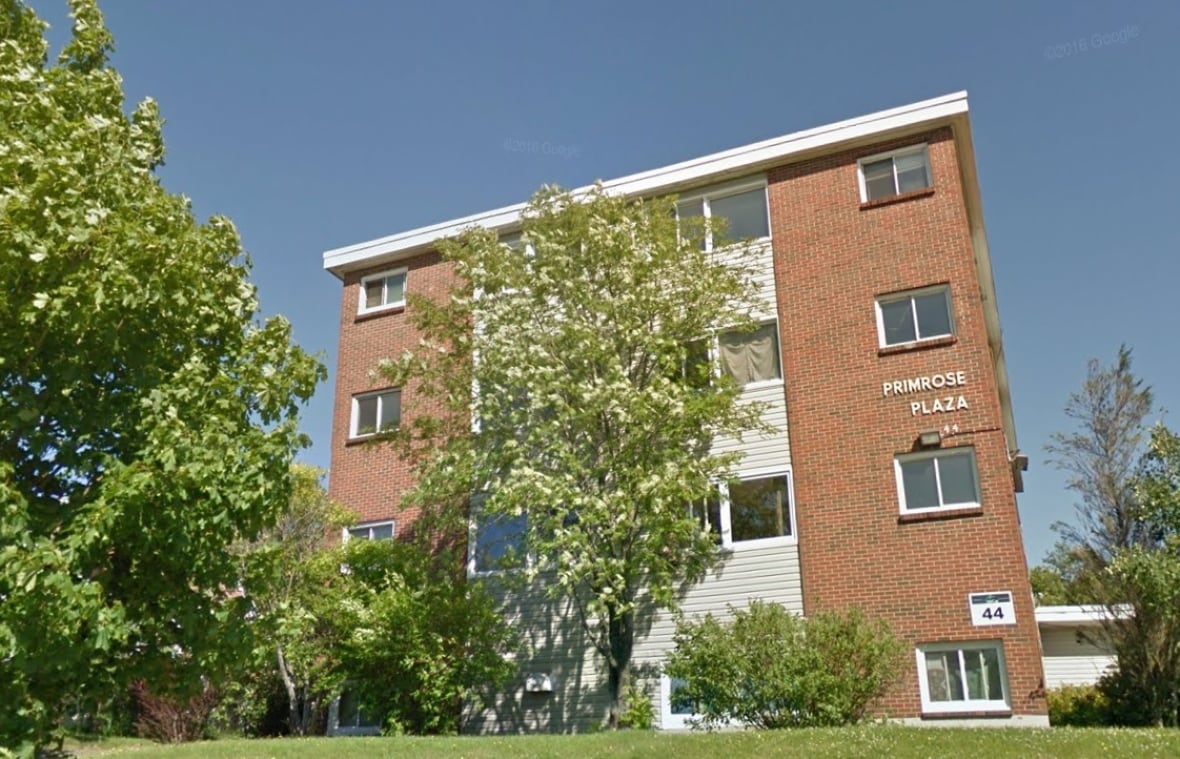Man who confessed to police from jail convicted of Dartmouth woman's murder
Christian Enang Clyke holds out possibility of appeal, judge invited to find him guilty without trial

A Halifax man who in 2016 called police from jail and confessed to shooting a woman to death in an apartment hallway five years earlier has been convicted of second-degree murder.
In an unusual situation, a Nova Scotia Supreme Court judge found Christian Enang Clyke guilty Monday in the 2011 death of Angela Hall, 39, even though there was no trial and Clyke had pleaded not guilty.
Last month, Justice Peter Rosinksi ruled during a voir dire that Clyke's confession to police would be admissible at trial. However, the judge has not yet released the reasons for his decision and there was no time for Clyke to consider an appeal of the ruling before his four-week jury trial was due to begin this week.
"We're in that position where defence is recognizing that they believe there was going to be a conviction entered at the end of this trial, but yet they still wanted to preserve the right of appeal," Crown prosecutor Melanie Perry said.
"So instead of him going in and saying guilty, he maintained the not-guilty plea and essentially it was an invitation to the court to make a finding of guilty."

On Monday, the Crown and defence entered an agreed statement of facts into evidence. Based on that statement, Rosinksi found Clyke guilty of murder.
According to the statement, Clyke and another man went to Hall's apartment on Primrose Street in north-end Dartmouth on the evening of April 29, 2011. They were looking to buy marijuana, something Clyke had done before.
Hall refused to sell them any and instead rushed the two men out of her apartment and into the hallway. A scuffle ensued and Hall ended up lying on the floor. Clyke took out a .32-calibre handgun he'd brought with him and shot Hall once in the back.
A neighbour called police. According to the statement, the neighbour told police that Hall had been attacked by two males, who he saw running from the scene. The neighbour saw Hall lying on the floor, bleeding with a knife beside her.
Hall was rushed to hospital, where she was pronounced dead. An autopsy determined the cause of death as a single gunshot wound although she also had cuts on her face and left hand.
Jail confession
Police got a break in the case five years later, in November 2016, when Clyke — who was being held in the Central Nova Scotia Correctional Facility on other charges — called police and confessed to the murder.
According to the statement, the gun Clyke used to kill Hall was a prohibited weapon that police seized from him a month after the shooting at the scene of another incident.
The statement also said Clyke had consumed Valium and another benzodiazepine at the time of the murder.
While Rosinski ruled the confession would be admissible, Clyke stuck to a plea of not guilty as he awaits the judge's reasons.
"In this kind of an odd situation where the voir dires were held so close to the trial, where we know the result but not the reasons, this allows Mr. Clyke the availability to appeal if those reasons do give us grounds to do that," his lawyer, Jonathan Hughes, said outside court.
Life sentence
The murder conviction carries an automatic life sentence, but Rosinski must still determine how much time Clyke must serve in prison before he can begin applying for parole.
The range is between 10 and 25 years. Perry said the Crown and defence will be making a joint recommendation on parole ineligibility but she wouldn't say what that will be.
Hall's two children, Alicia and Mitchell, plan on giving victim-impact statements. They had asked that the hearing be on April 29, the eighth anniversary of their mother's death. But no courtroom is available on that date so the hearing on parole ineligibility will be on May 1.